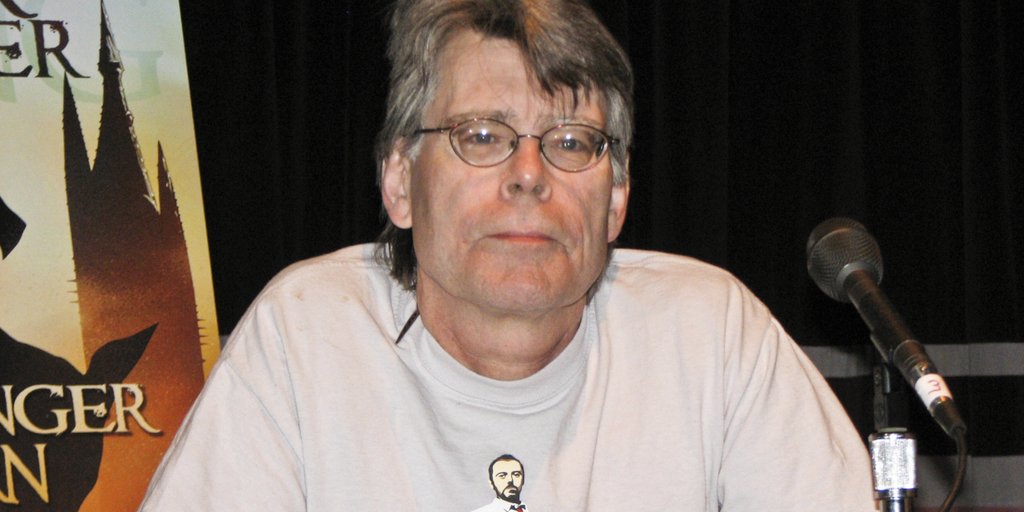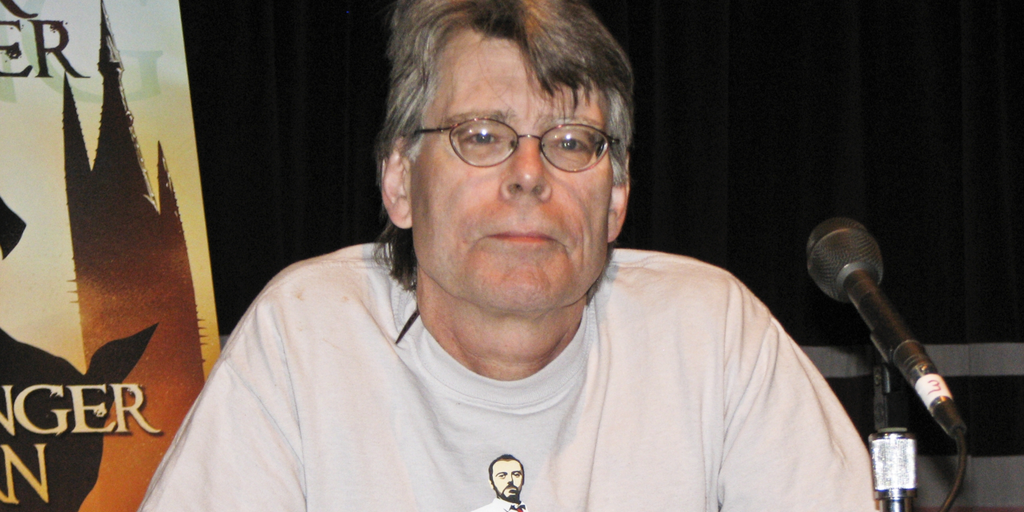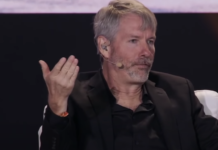
Stephen King, the iconic horror author behind novels like “It” and “The Shining,” believes that opposing AI is futile—and he should know, since his works have already been used to train it.
In a world where artificial intelligence is rapidly becoming a part of our daily lives, the debate over its use in creative fields is heating up. The best-selling author recently penned an op-ed for The Atlantic, after the publication found through analysis that his works were used to train various models.
But unlike many in the creative industry, King doesn’t seem to mind.
“We live with self-driving cars, phones that guide us, and saucer-shaped vacuum cleaners,” King mused, questioning if a machine that reads can learn to write. He believes that while AI-generated text (and probably art in general) might look good at first glance, they cannot get to the same level of a work crafted by a talented human being.
“AI poems in the style of William Blake or William Carlos Williams (I’ve seen both) are a lot like movie money: good at first glance, not so good upon close inspection,” he said.
Some believe AI could end humanity, but King—widely regarded as the master of horror—doesn’t feel threatened by it. He believes that creativity requires sentience, and while some might argue that AI achieves this, King remains skeptical.
The author argues that resisting AI’s inevitable march is futile, and while cautious of AI’s potential sentience, he views banning his work’s use as pointless obstructionism.
“Would I forbid the teaching (if that is the word) of my stories to computers? Not even if I could.” King said,” “I might as well be King Canute, forbidding the tide to come in. Or a Luddite trying to stop industrial progress by hammering a steam loom to pieces.”
But unlike King, Hollywood’s writers and actors are up in arms over the looming threat of AI. The Writers Guild of America (WGA) and SAG-AFTRA have both gone on strike, the first such joint strike in 63 years, protesting against the industry’s plans to embrace AI along with other concerns.
The anti-AI sentiment is palpable, with many vocal artists believing their work is being unfairly used by AI trainers that could eventually cut them out of creative industries. Several news sites have even blocked OpenAI from crawling their content to train new models. Furthermore, there’s an ongoing lawsuit against companies generating AI pictures.
Laci Mosley, an actress supporting the strike, emphasized the human touch in the industry, telling Decrypt, “A computer cannot recreate what we do and what we’ve worked for.”
Ike Barinholtz, another noted actor and comedian, echoed this sentiment, stressing that art should be generated by humans from their own experience. The epicenter of the controversy remains in the possibility of movie studios to use AI to substitute writers and even “deepfake” copies in place of actors.
While King’s acceptance of AI’s role in the future is clear, he also acknowledges the potential challenges. He doesn’t feel his territory is being encroached upon, but he does ponder on the future, referencing D. F. Jones’s novel, “Colossus,” in which a sentient computer believes humanity will come to love and respect it.
Rather than railing against the machine, King appears open to seeing where AI leads. He believes society could adapt and embrace the tech much as we have smartphones today.
King ultimately concludes that machines presently lack true creativity, but avoids definitive predictions about AI matching humans. In true horror fashion, he leaves the door open for technology to someday generate bone-chilling, uncannily human art.
So while anti-AI petitions flourish and studios face raging picketers, King adds nuance. He declines to either condemn or endorse AI unambiguously. King appears to hold a cautiously optimistic “wait and see” attitude, though ready to be proven wrong.
Perhaps fitting for the master of horror, King evokes a sense that AI may shamble towards human-like creativity sooner than we think. Yet until that day comes, King acknowledges that today’s algorithms still appear more dead than alive.








